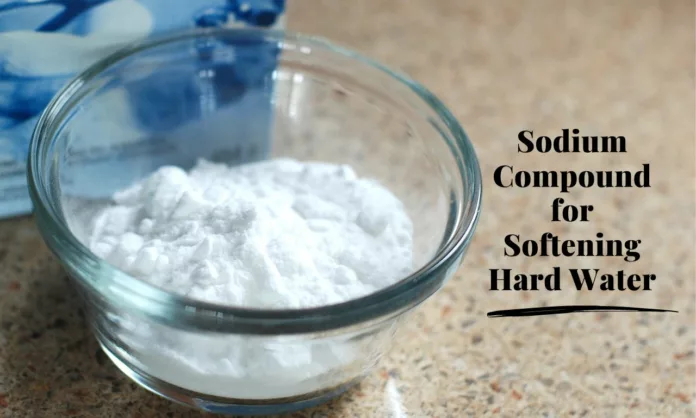Hard water is a common problem in many households and industries worldwide. It contains high levels of dissolved minerals, primarily calcium and magnesium ions, which can cause various issues such as scaling in pipes, reduced efficiency of appliances, and the formation of soap scum. To tackle this problem, water softening techniques are employed to remove or neutralize these minerals. One widely used sodium compound for softening hard water is sodium carbonate, also known as soda ash or washing soda.
Table of Contents
Sodium Carbonate and Water Softening
Sodium carbonate (Na2CO3) is an alkaline salt that can effectively soften hard water. Its ability to remove the hardness-causing minerals lies in its chemical composition. When dissolved in water, sodium carbonate dissociates into sodium ions (Na+) and carbonate ions (CO32-).
The carbonate ions in sodium carbonate react with the calcium and magnesium ions present in hard water through a process known as ion exchange. These reactions convert the calcium and magnesium ions into their respective carbonates, which are less soluble and do not cause the negative effects associated with hard water. The resulting softened water is more compatible with soap and detergents, leading to better lathering and improved cleaning efficiency.
Methods of Sodium Carbonate Application
- Regeneration in ion exchange water softeners: Sodium carbonate is commonly used in ion exchange water softening systems. These systems contain resin beads that attract and bind the calcium and magnesium ions from hard water. Over time, the resin beads become saturated with these ions and require regeneration. Sodium carbonate is used as a regenerant to displace the calcium and magnesium ions from the resin, restoring its softening capacity.
- Direct addition to water: Sodium carbonate can also be added directly to hard water to achieve softening. By adding a calculated amount of sodium carbonate, the carbonate ions react with the hardness minerals, precipitating them out of the water in the form of carbonates. These precipitates can then be filtered or removed through other water treatment processes, resulting in softened water.
Benefits and Considerations
Using sodium carbonate for water softening offers several advantages:
- Cost-effective: Sodium carbonate is relatively inexpensive and readily available, making it a cost-effective option for water softening.
- Widely applicable: Sodium carbonate is effective in various water softening applications, ranging from residential households to industrial settings.
- Versatility: Sodium carbonate can be used in both ion exchange water softeners and for direct addition to water, providing flexibility in choosing the most suitable method for a specific situation.
However, it is important to note that sodium carbonate can increase the overall salt content in the water. For individuals on low-sodium diets or in regions with concerns about elevated sodium levels in the water supply, alternative methods of water softening may be more appropriate.
Conclusion
Sodium carbonate, with its ability to react with hardness-causing minerals in water, plays a crucial role in softening hard water. By employing ion exchange processes or direct addition to water, sodium carbonate effectively removes calcium and magnesium ions, resulting in improved water quality, better performance of appliances, and enhanced cleaning efficiency. When considering water softening options, sodium carbonate stands as a reliable and cost-effective solution for combating the issues associated with hard water.

